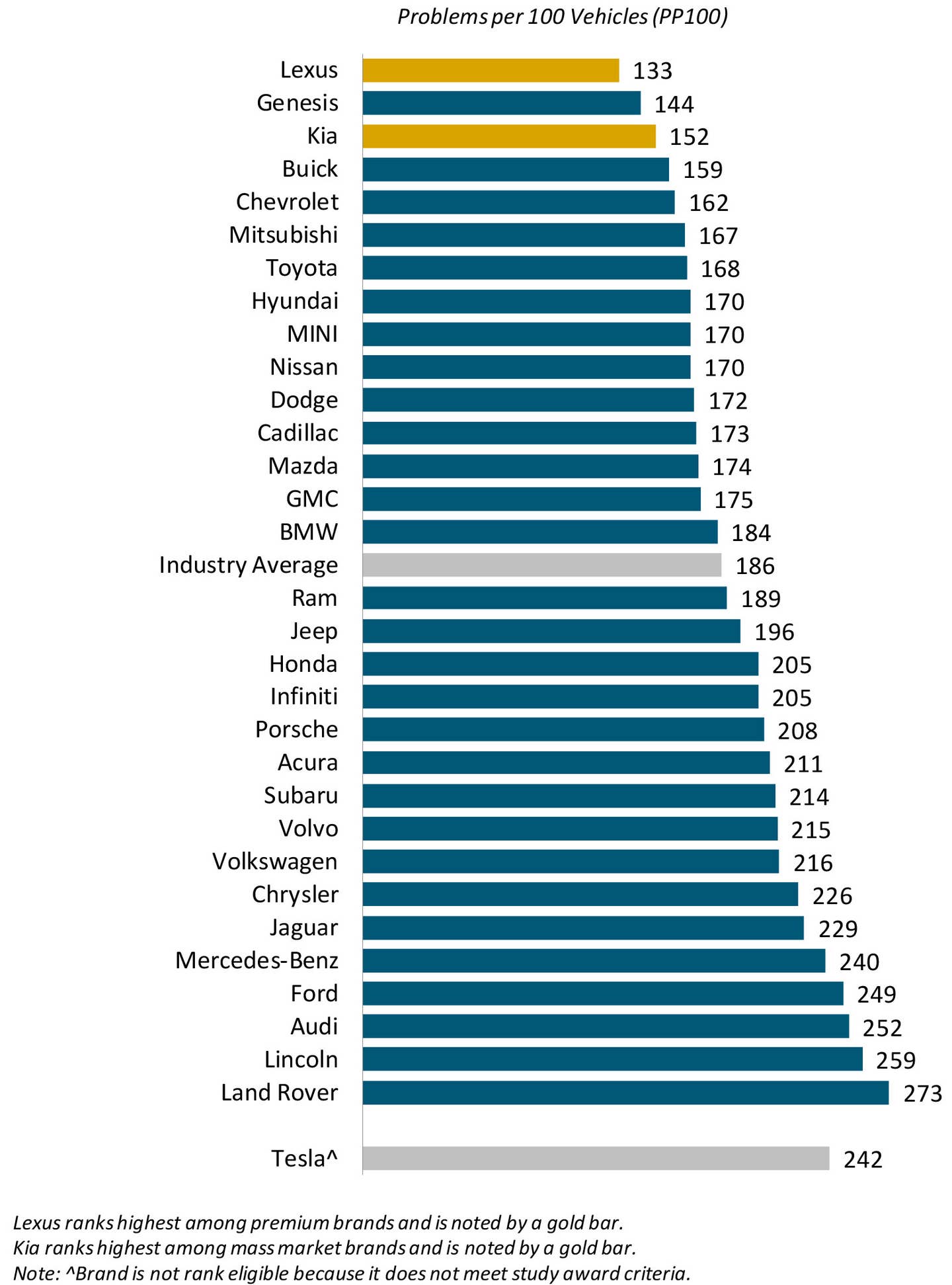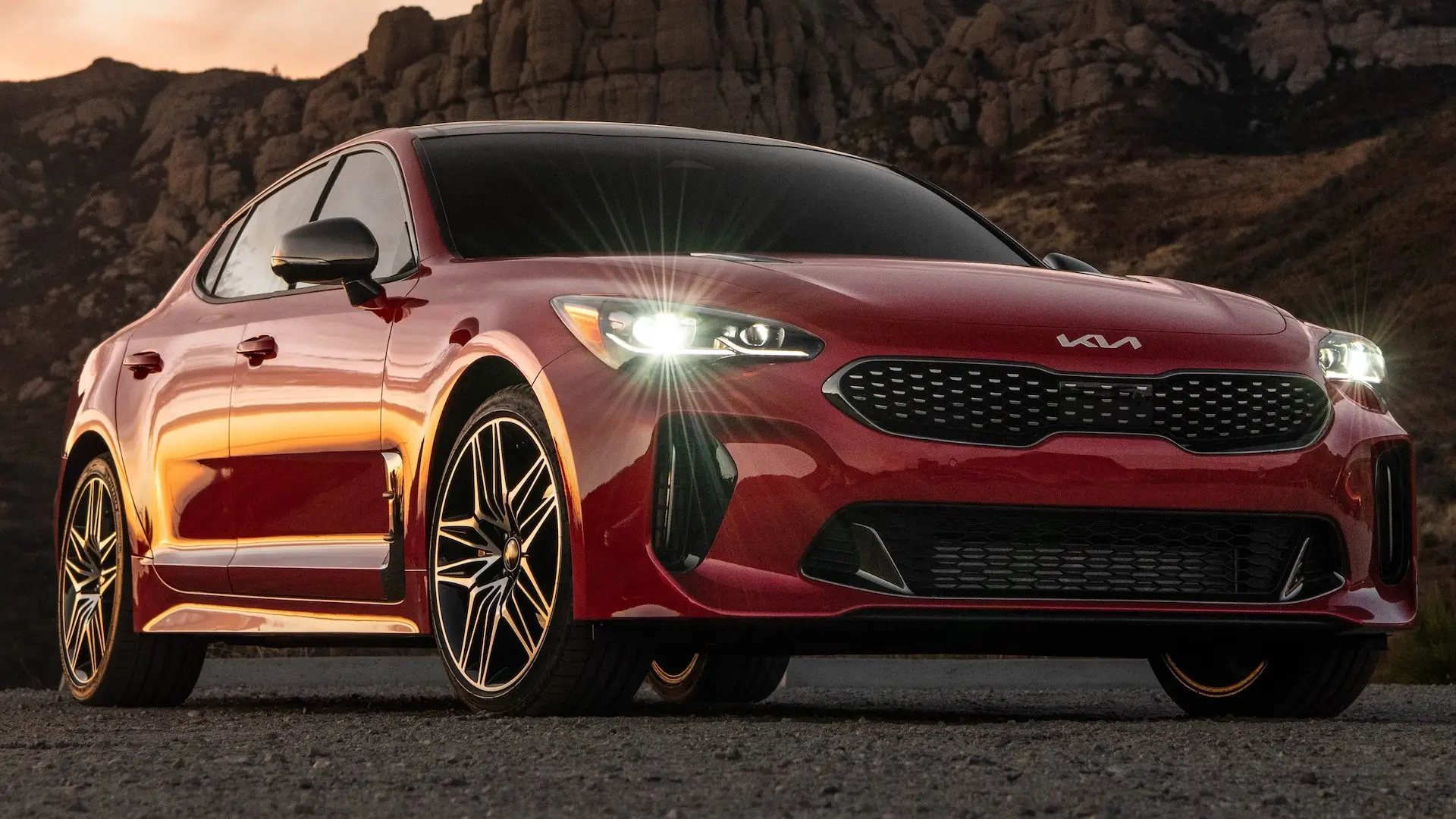The 2023 edition of the J.D. Power and Associates U.S. Vehicle Dependability Study was released this week with a handful of surprises on the list. Multiple brands from General Motors outranked Toyota, while all Korean makes muscled into the top 10 despite their recent spate of bad news from insurers and law enforcement.
The study consulted 30,062 owners of model-year 2020 vehicles after three years of ownership to determine the number of problems per 100 vehicles (PP100). Compared to last year’s survey, the auto industry improved its PP100 score by six points compared to 2022, for a mean of 186. Mass-market brands came in lower at 182 (an improvement of eight), while premium brands increased by one to a score of 205. It’s the largest gap ever measured in 34 years of studies, which J.D. Power attributes to the escalating complexity of premium vehicles.

Relative to 2022, the biggest improvements were made by Nissan (35 points), Volvo at (41 points), and Ram (77 points). That pushed Nissan into the top 10 most dependable, though Ram still comes in with more problems than the industry average, and Volvo still ranks in the bottom 10.
Nissan’s alliance partner Mitsubishi ranked higher still at sixth, putting it narrowly above Toyota in seventh. Two GM brands—Buick and Chevrolet—edged into the top five, while Korean makers Kia and Genesis reached the top three. Lexus however retook the top honors from Genesis, and by a significant margin.
J.D. Power also included a score for Tesla—the first time the all-electric brand has been included in this list—fifth-worst between Mercedes-Benz and Ford. It was not officially ranked however because the brand did not allow access to owner information—even where required by law— so they weren’t officially ranked. Both Ford and its premium marque Lincoln placed in the bottom four, the latter ranking second least dependable behind only Land Rover. JLR’s other brand, Jaguar, came in sixth-worst.
For individual models, the Lexus RX and Toyota C-HR tied for most dependable model for new owners. The Kia Forte, Optima and Sportage notched top awards in their respective segments, while the BMW 4 Series, X5 and X2 earned nods in theirs. The Chevy Silverado HD was the most dependable heavy-duty pickup, while the GMC Sierra was the most dependable light-duty pickup. The Tacoma edged out the Colorado to be the most dependable mid-sizer.
Industry-wide, the biggest source of score problems proved to be infotainment systems, accounting for almost a third of all problems on their own with a score of 49.9. That means basically half of all new cars have some sort of infotainment problems within three years. Their issues vary widely in severity, and can be as minor as outdated maps, poor voice recognition, or even just Apple CarPlay/Android Auto connectivity problems. Still, it goes to show that on top of being a known distraction hazard and pricey to fix, they’re also plagued with long-term functionality problems. With right to repair under attack from automakers, perhaps it’s a sign that the fad of touchscreen infotainment should be brought to a swift end.

